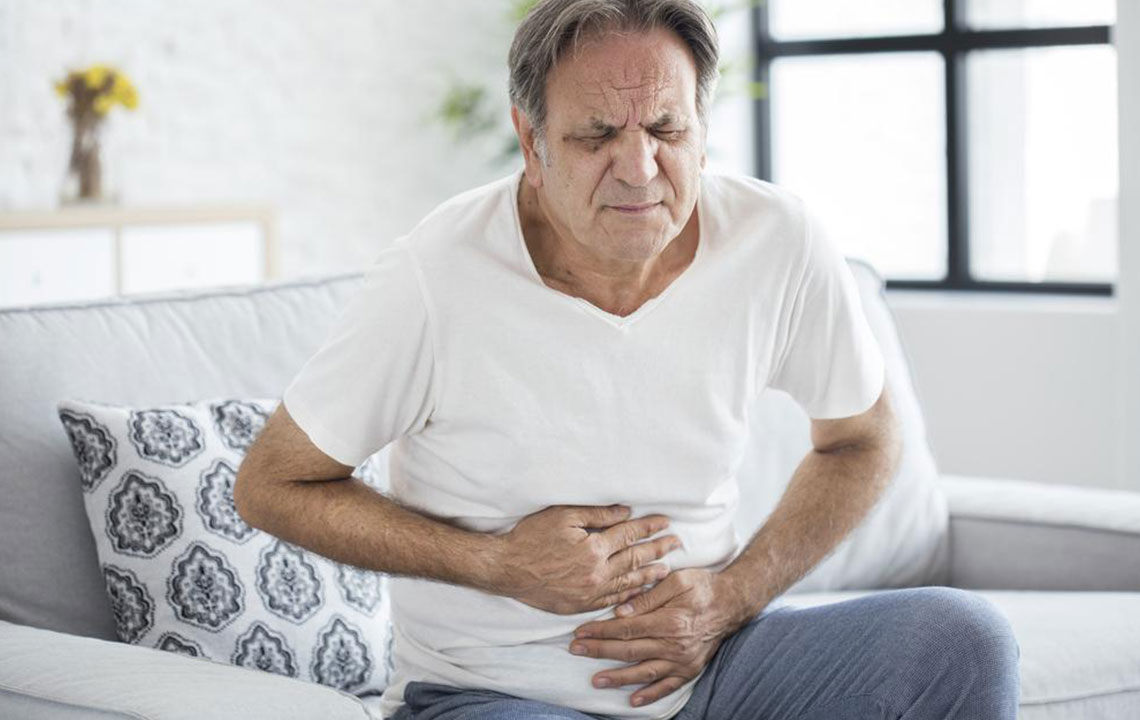Effective Medications for Irritable Bowel Syndrome

IBS, irritable bowel syndrome is a condition that affects the colon. IBS is accompanied by pain in the abdomen and change in the bowel movements. It is diagnosed based on the severity of the symptoms of IBS. Since IBS is a collection of symptoms, therefore it is called a syndrome. IBS is of different types depending on its symptoms, such as IBS-D for diarrhea, IBS-C for constipation, IBS-M (both diarrhea and constipation) and IBS-U (neither diarrhea nor constipation).
Signs of IBS: Diarrhoea, gas, bloating, rectal bleeding, weight loss, constipation, and muscle in stool are some of the probable symptoms of IBS.
Causes of IBS: There is no specific reason for the IBS. It is assumed IBS is caused by an infection. The intestines swell up. The problem may even continue for a lifetime. In some cases, the intestine muscles contract and relax during the digestion process. The causes and effects of IBS are different among people. Contractions in IBS may cause bloating, diarrhea, and gas. Weak contractions make it difficult for the food to pass which causes constipation.
Activators of IBS: Different factors such as stress, hormones, and foods cause IBS among individuals. Some food products such as cabbage, fats, beverages, alcohol, chocolate and milk products cause IBS problems.
The IBS problems accentuate during stressful durations. Stressful situations at the workplace, home or office can cause IBS frequently. Women suffer from IBS more than men, and the problem worsen during the menstrual periods.
Effects of IBS: Regular instances of constipation and diarrhea lead to the development of hemorrhoids. Restricting the intake of several food products can result in loss of essential nutrients.
IBS worsens the life quality. People with IBS generally feel high stress and anxiety. Once if IBS is diagnosed, you need to visit the doctor for tests and treatments. The patient may find the process exhausting which can impact their lives.
IBS can be cured by changing lifestyle, diet habits, and IBS medications. IBS medication works effectively to lessen the complications of IBS.
Some of the popular IBS medications are as follows:
Bulking agents: Bulking agents such as psyllium and bran allow the easy passage of stool and avoid the complication of symptoms of constipation.
Laxatives: Laxatives must be taken under the prescription of physicians and works well to cure constipation.
Antispasmodics: These IBS medications are effective to get rid of abdominal pain and bloating. Levsin and Bentyl are effective antispasmodics.
Anti-diarrheal drugs : They are helpful in the prevention and relieving the symptoms of diarrhea. Imodium, Lomotil, and Diphenoxylate are best anti-diarrhoeal agents.
Anti-depressants: Antidepressants keep control of stress and anxiety disorders. Emotional distress and related symptoms can be treated using quality anti-depressants.
Always ask the physicians before taking the IBS medications. Follow the IBS medication directions for better results.
Medications for IBS-D
- Alosetron is a powerful drug which inhibits the flow of sensory information to the brain from the gut. It lessens the abdominal pain and is more effective for use in women.
- Rifaximin is an antibiotic which lessens the bacteria in the gut. Bloating and diarrhea can be reduced after a regular treatment of 10-14 days.
- Eluxadoline IBS medication is effective for adult men and women and increases stool consistency. It reduces the bowel contractions by activating the receptors in the nervous system.
Medications for IBS-C
Lubiprostone: It works to treat the chronic constipation symptoms. Lubiprostone enhances the secretion I the bowel through chloride channels. This boosts peristalses which are muscle contractions that push stool through the gastrointestinal tract.
Linaclotide: It promotes the movements of stool through the gastrointestinal tract. It is a good IBS medication for chronic constipation and obstructs the pain signals in the intestines.
Some other effective methods to treat IBS are as follows:
Diet: If you want to control the symptoms of IBS, go for a changed diet plan. The diet you choose must depend on your reaction to certain foods. Thus it is impossible to define a specific IBS-friendly diet for all individuals. Avoid consuming food items that activate the symptoms of IBS.
High-fiber intake: Food products contain both soluble and insoluble fibers. Root vegetables, apple, barley, oats, bananas contain soluble fibers which dissolve in water. Cereals, bread, seeds, and nuts contain insoluble fibers. Patients suffering from IBS must change the fiber intake in their diets. Those with constipation must increase the dosage of soluble fiber and drink plenty water. However, if there are cases of diarrhea, lessen the insoluble fiber intake.
Exercise: Ask your specialists which exercises are suitable for you depending on your IBS symptoms. You can try cycling, aerobic activities, and brisk walking every day. Practice the exercise long enough such that it increases the heartbeat and promotes the blood flow in the body.
Stress reduction: Try relaxation activities, yoga, and meditation which help to cut down the stress levels. Swimming, running and walking are some other exercises you can try.


